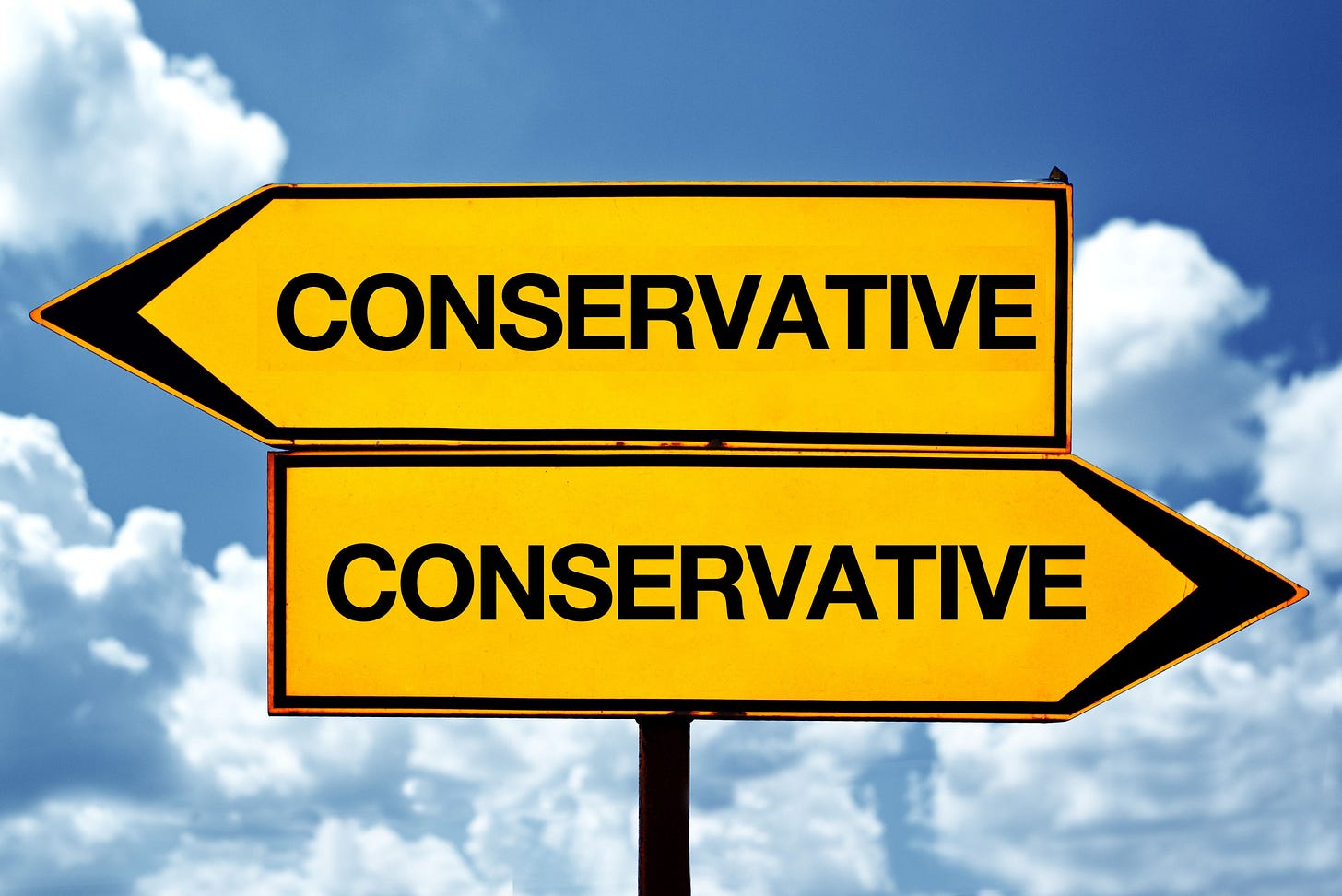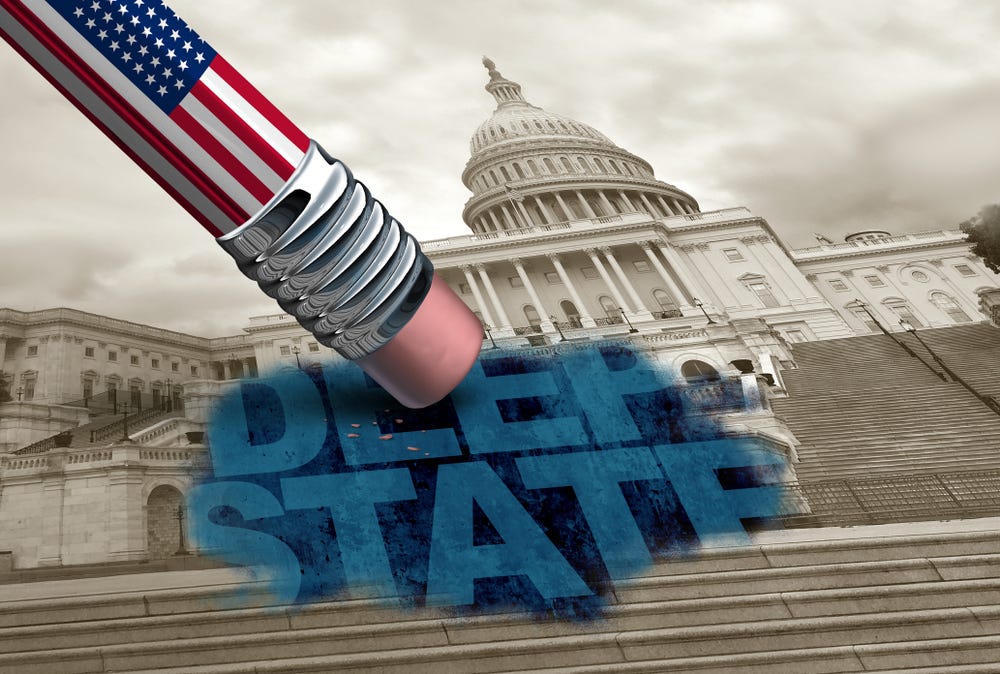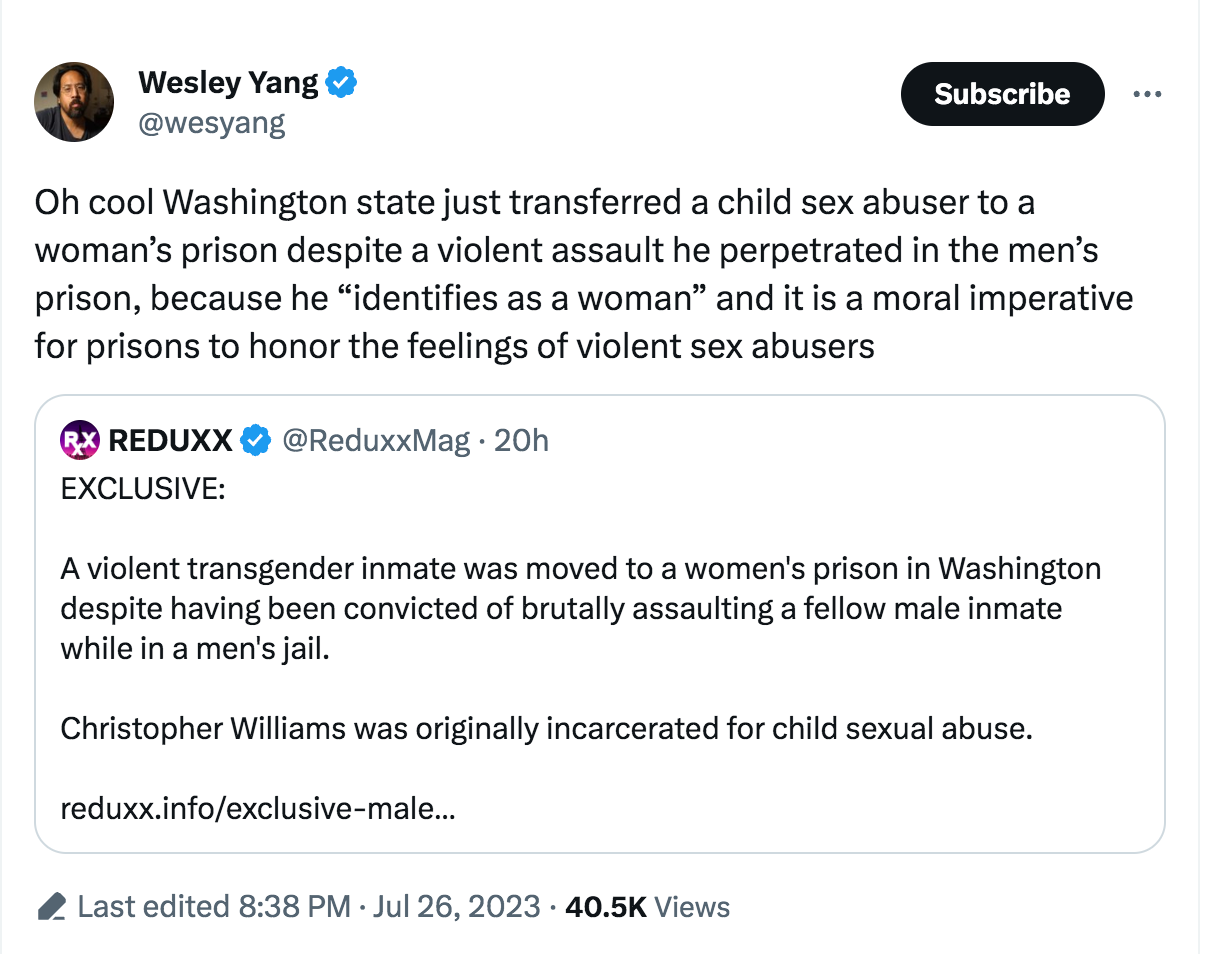E-Pluribus | July 27, 2023
Will the real conservatives please stand up; just how deep is the deep state; and how democracy moderates extremism.
A round-up of the latest and best writing and musings on the rise of illiberalism in the public discourse:
Scott Lincicome: Natcons, Freecons, and the Centrality of the State
A recent statement of principles signed by a group of Freedom Conservatives is seen by many as a direct challenge to the National Conservatives who increased their visibility and power during the Trump era. Scott Lincicome at The Dispatch compares and contrasts the statements of the two groups and says that the difference comes down to the desire and willingness to use or eschew the power of the federal government.
[The essay is] about whether the dueling [National Conservative and Freedom Conservative] statements offer much of a choice at all, or whether they are—as some more thoughtful internet commentators have since asserted—simply different points along the same conservative spectrum, separated by modest and marginal policy differences instead of a gaping philosophical chasm. In this reading, the two statements, and the groups they represent, share the same objectives and political adversaries—the woke left, a captured administrative state, compromised corporatists, and so on—and, save a few major policy breaks (mainly trade and immigration) or imprecise/emotional words here and there—really just disagree about where wonky policy lines should be drawn. In short, it’s all shades of the same conservatism—shades that only the dorkiest of politico will care about.
This view, I think, really misses the mark. Indeed, even a cursory look at the two statements reveals a foundational, unbridgeable gap between natcons and freecons on the role of the government—especially the federal government—in American politics and American life. And it’s that difference, in turn, from which the policy differences (and there are many) are derived.
[. . .]
This distinction is not merely rhetorical—it drives big differences in how natcons and freecons approach and craft public policy, with the former taking a far more expansive—indeed, progressive—view of where and how the federal government may and should intervene on various policy issues. This includes, by the way, issues and entities about which many freecons are also quite concerned—things that most freecons agree are a nationwide problem but wouldn’t ever condone bringing the government into the matter. Roy gets at some of this in his piece, highlighting that, while he shares natcons’ concerns about cronyism, corporate power, and Chinese government influence, freecon solutions center on freedom, markets, and both constitutional and pragmatic limits on government action. Natcons’ first instinct, on the other hand, is seizing and using state power.
That embrace, it should be noted, goes well beyond federalism and the administrative state—and beyond discrete policy issues like immigration, trade, or industrial policy. Indeed, seemingly wherever there’s a perceived enemy (Big Tech, Wall Street, “the left”, etc.) or problem (economic or cultural) challenging the (undefined) “national interest,” natcons’ eager default response is to enlist the government to address it. Here are ones I can think of just off the top of my head: Tech policy (e.g., Section 230); corporate speech (e.g, Disney/Florida, social media, ESG); antitrust; education (especially “anti-woke” stuff); financial regulation (e.g., buybacks and “financialization”); labor policy (e.g., at Amazon); transportation policy (e.g., the Railway Safety Act); family policy (e.g., child allowances); and entitlements (sigh).
If this is “conservative government,” I’d hate to see what the progressive version is.
Read the whole thing.
Eli Lake: Hunter Biden and the ‘Deep State’
Writing at The Free Press, Eli Lake says that while some form of a “deep state” does exist in the federal government, take heart because it’s not the all powerful leviathan it’s made out to be. Lake looks at the Hunter Biden case (or cases, more accurately) and contends that while there are indeed efforts by some in the bureaucracy to operate independent of accountability, others are working to make sure that some sunlight can still shine through.
For Donald Trump’s most dedicated fans, the latest revelations from the FBI and IRS about Hunter Biden suggest a darker force at work: the Deep State.
For this crowd, the deep state functions like an invisible force behind the curtain that controls our country on behalf of an oligarch class. As a concept, it’s been around for decades. Dot-connectors and beautiful minds will use the deep state as a conceptual crutch to explain great national traumas. Who shot JFK? The deep state. Who invented crack cocaine? The deep state. 9/11? You get the picture.
This kind of deep state is a paranoid fiction. But a more nuanced version of this concept—call it the national security state—does in fact exist. It is the secret part of our government and it includes entrenched bureaucrats at our intelligence agencies, the FBI, and the military. Because its actions and policies are often highly classified, it often acts with little real oversight or accountability.
[. . .]
Do the disclosures about the FBI and the IRS prove that some kind of deep state acted as a shield for Hunter’s derelictions and tax crimes? Not exactly.
It’s true that the FBI has lost much of its legitimacy with the Republican Party. But the key reason why the bureau has been exposed is because of other individuals who would surely count as part of a “deep state.” For example, the Justice Department’s inspector general, at the end of 2019, issued a devastating report that destroyed the defenses made for the FBI’s application to spy on a Trump campaign aide named Carter Page.
Ziegler and Shapley are investigators for the agency of the U.S. government that collects federal income taxes—the textbook definition of deep-state actors. And yet, they pursued Hunter’s crimes without fear or favor even as others tried to stop them. Eventually, Ziegler and Shapley blew the whistle and Congress now has an opportunity to hold the prosecutors who went easy on the president’s son accountable.
Stories like Russiagate and the Hunter Biden affair play into the paranoid underbelly of American politics. For those Americans that look for the hidden hand of a deep state, these scandals are proof that the system itself is rigged. And yet the events of the past week prove that, thanks to honorable people, the system is also working.
Read it all.
Sheri Berman: How Western Europe’s Far-Right Moderated
Pessimism about the future of freedom is pervasive and not just in this country; there are worrying signs through Europe and beyond. But writing for Persuasion, Barnard College’s Sheri Berman points to recent developments that suggest democratic pushback is bringing about moderation in Europe’s far-right parties and that there are reasons to believe the trend will continue.
It is hard to be hopeful about democracy today. We are bombarded with headlines proclaiming democracy’s “retreat,” “crisis,” and perhaps even “death.” In the United States, both Democrats and Republicans believe democracy faces serious threats and President Biden has addressed what he views as widespread sentiments that “democracy’s best days [are] behind us.” Across the Atlantic, meanwhile, recent electoral victories by the Brothers of Italy, the Sweden Democrats, and the French National Rally—parties with far-right, even neo-Nazi roots—led many to proclaim that “fascism was returning” and democracy in danger even in Western Europe, a region where it has long been taken for granted. That’s become the reflexive framing for many commentators addressing European politics. The Guardian, for instance, declared Spain’s election, held this past weekend with the right-wing Vox party potentially poised to enter a ruling coalition, “a key battle in the Europe-wide struggle against neofascism.”
This pervasive pessimism is not justified. Far from being a sign that democracy is imperiled in Western Europe, the evolution of the Brothers of Italy, the Sweden Democrats, and the French National Rally should make us cautiously optimistic. These parties have come to recognize that in order to win votes and political power they had to move away from their far-right roots, moderate their appeals and policy platforms, and pledge to play by the democratic rules of the game.
The evolution of these and other Western European right-wing parties reflects something counterintuitive about the relationship between extremism and democracy: whether extremist parties become significant threats to democracy depends less on the parties and more on the nature of the democracies they face.
When democratic norms and institutions are weak, extremists have little incentive to moderate, since they will be able to gain supporters and potentially power without playing by the rules of the game. But where democratic norms and institutions are strong—as they have been for decades in Western Europe—extremists tend to be forced to moderate because there is little constituency for explicitly anti-democratic, extremist appeals. And until they moderate, other political actors and institutions are able to keep them from power.
Understanding these dynamics has implications for how we assess and respond to threats to democracy today.
Read it all here.
Around Twitter
If accurate, this survey reflects worrisome attitudes of the American people on allowing the government to be the arbiter of free speech:
Via Wesley Yang: Washington State is less concerned with an inmate’s actual identity as a child sex abuser than his self-proclaimed gender-identity:
https://twitter.com/wesyang/status/1684362577168551936
And finally, the Associated Press introduces a new term into mainstream journalism: “policy violence”










